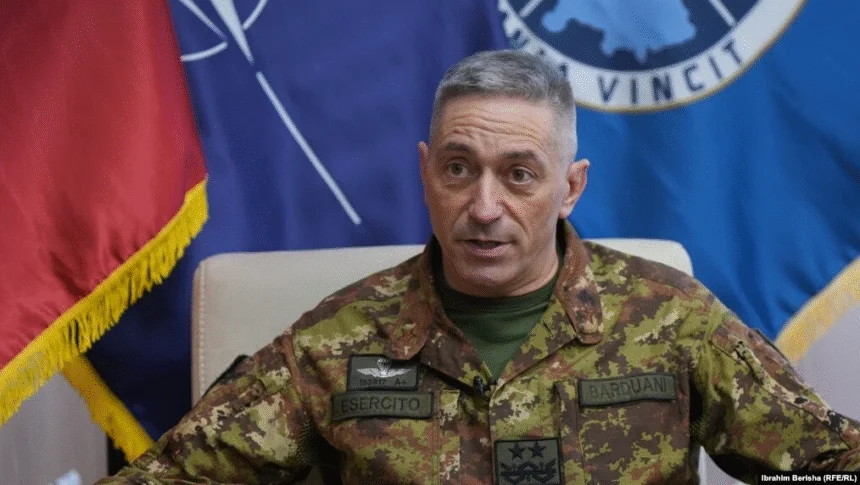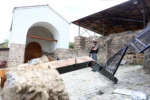Despite Kosovo’s ongoing institutional vacuum following the February elections, the Commander of NATO’s peacekeeping mission (KFOR), Major General Enrico Barduani, has confirmed that KFOR sees no immediate threat to security and remains fully prepared to address any destabilization attempts.
In an exclusive interview with Radio Free Europe, Barduani stressed that while political gridlock can create openings for foreign actors with harmful intentions, the current environment in Kosovo remains within the norms of democratic transition.
“KFOR is not concerned. We are well-equipped and strategically positioned to handle any potential security risks,” Barduani stated.
Kosovo Faces Institutional Paralysis
More than a month after the certification of February 9 elections, Kosovo has failed to form new government institutions. All eleven parliamentary sessions aimed at constituting the new Assembly have collapsed, delaying the establishment of the executive branch.
While this political impasse raises domestic and international concerns, Barduani maintained that NATO’s forces are maintaining a “rapid, flexible, and visible presence” throughout the country to deter any potential unrest.
Memories of Past Attacks Still Linger
Barduani recalled two major incidents that underscore Kosovo’s fragility:
- The armed attack in Banjska (September 2023)
- The Ibër-Lepenc canal assault (November 2024)
Following the Banjska attack, NATO responded by deploying 1,000 additional troops to Kosovo, particularly in the north.
“The situation is calm but remains sensitive to sudden escalation,” he warned, attributing the risks largely to the stalled dialogue between Pristina and Belgrade.
Dialogue – The Only Sustainable Path Forward
While KFOR’s presence provides a deterrent, Barduani emphasized that lasting peace must come through diplomacy, not force.
“KFOR and NATO can only do what is possible militarily. The long-term solution is political,” he stated, fully endorsing the EU-facilitated dialogue.
He welcomed the appointment of Peter Sorensen as the new EU Special Representative for the dialogue and confirmed that coordination with EULEX and Kosovo Police remains strong through joint patrols and real-time communication.
“Peace in the Balkans cannot be achieved without compromise. All actors must reject violence and embrace diplomacy,” Barduani concluded.
Support for Kosovo’s NATO and EU Aspirations
Major General Barduani reiterated NATO’s support for Kosovo’s Euro-Atlantic ambitions, underlining the need for regional integration and unity.
“The Western Balkans belong in the Euro-Atlantic family. The key lies in diplomatic courage and mutual willingness to move forward,” he said.







